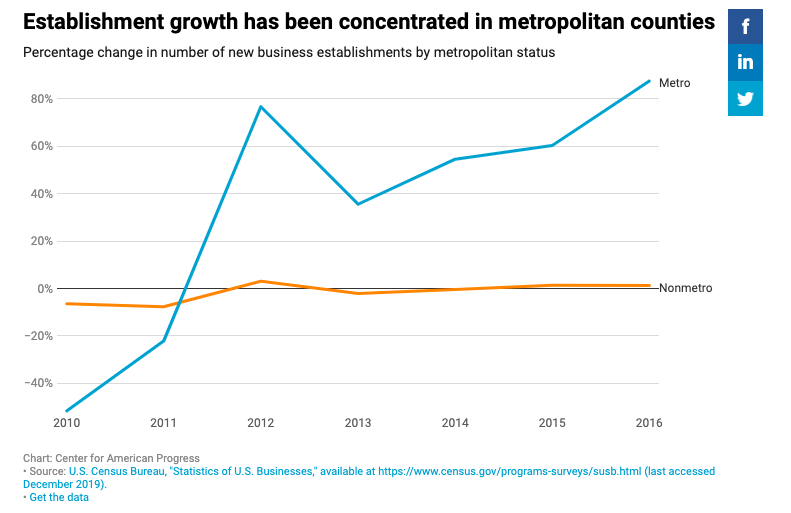Since the Great Recession (~2008), the growth of small businesses has been concentrated in big cities and urban-suburbs, according to a report by the Center for American Progress (CAP). During the same period of time, nearly all rural areas have experienced a substantial loss of jobs and a lack of business creation. Policies geared toward encouraging rural startups have not been effective in rural areas, leading to a growing regional divide, according to the report.
- Southern rural areas have seen the highest levels of business closures.
- African American communities have borne the brunt of economic decline.
Some pockets of rural America are seeing business growth, but not at the same pace as urban business growth.
- Communities that are retirement-focused (graying communities) are generally recreation-dependent. These communities are located in large states such as Florida, Texas and California.
- Rural areas with mining focus, especially in the oil and gas industry.
- Latter-day Saint enclaves in Utah have large youth populations and less population loss than other rural communities.

In rural America, the small business decline is tied to population decline.
- There’s little point in setting up shop in a town with few potential customers.
Some rural communities have turned to a new way to improve their potential for growth.
- Opened their doors to immigrants to increase their populations and generate more small business demand in…
- Agriculture
- Manufacturing
- Health care
- Tourism
However, there can be a “trust gap” to overcome in rural towns where locals may be skeptical of newcomers, says CAP senior economist Olugbenga Ajilore, author of the report.
SEE ALSO | Challenges Facing Rural and Small Town Businesses and Residents| 2020
GettyImages
